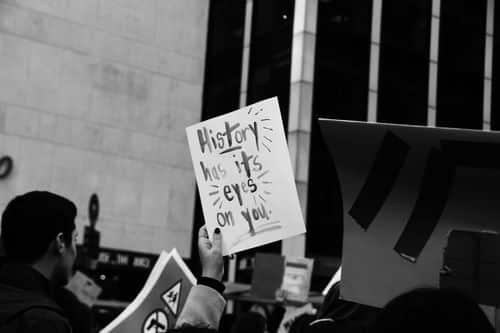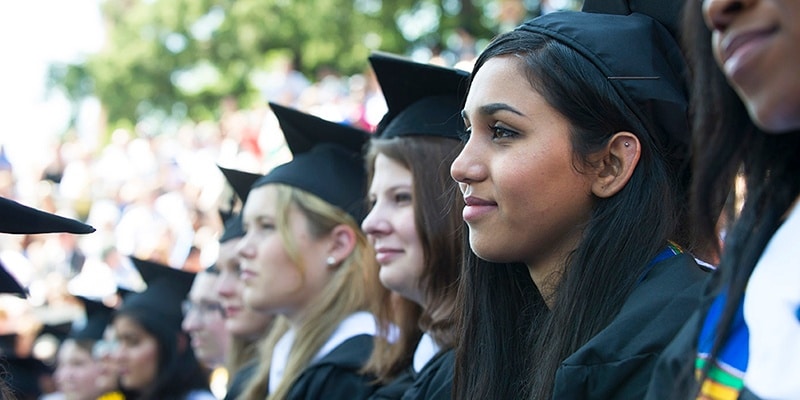

 April 19th, 2018, was a day of highs and lows. During the day, school was abuzz. Everyone was talking about the next day’s school walkout (planned in response to the school shooting in Parkland, Florida)–whether they were going to do it, what they thought the punishments might be, and if they were going to appear in our local newspaper. My phone was on fire with texts from the organizers’ group chat. We planned to meet that day after school, and as we sat in the conference room, we jointly wrote about the event on Facebook. I went home, giddy and anxious. My leg bounced under my kitchen table while I worked on my homework, my trademark nervous habit. I worried that no one would show up, or that everyone would get in trouble and blame me, or that it would rain really hard and ruin the entire day. My foot bounced faster, but then my phone dinged, pushing me out of my reverie.
April 19th, 2018, was a day of highs and lows. During the day, school was abuzz. Everyone was talking about the next day’s school walkout (planned in response to the school shooting in Parkland, Florida)–whether they were going to do it, what they thought the punishments might be, and if they were going to appear in our local newspaper. My phone was on fire with texts from the organizers’ group chat. We planned to meet that day after school, and as we sat in the conference room, we jointly wrote about the event on Facebook. I went home, giddy and anxious. My leg bounced under my kitchen table while I worked on my homework, my trademark nervous habit. I worried that no one would show up, or that everyone would get in trouble and blame me, or that it would rain really hard and ruin the entire day. My foot bounced faster, but then my phone dinged, pushing me out of my reverie.
Madison, one of the organizers, texted us that our school's assistant principal wanted to meet with all of the organizers in his office the next day. My stomach twisted into a knot, as I closed my eyes and took a deep breath while reminding myself about why I organized the walkout in the first place. We wanted to keep the momentum going following the Parkland shooting's walkout a month earlier. I knew the assistant principal could suspend us if he wanted to, but I didn’t care. This was something that I needed to do.
As I drove to school the next day, a few of the other organizers were waiting by the front door. We walked upstairs together — a united front. The five of us entered the assistant principal’s office in silence. The next two hours were painful to endure. We offered every possible solution, but were met with nothing but resistance. He threatened to call the police if we walked out of the school building. My foot bounced incessantly and I bit the inside of my cheek to keep from crying, but we knew that we couldn't jeopardize our academic futures, and those of our peers. We had been pushed into a corner, and we had no choice but to cancel the walk out.
We left his office feeling worn out, our heads hung low. The rest of the night seemed like a blur. I cried and cried, incredibly frustrated that something I believed to be so important, and that I had put that much work into, could be torn away so easily. We come to school every day to learn, not just about algebra and biology, but about ourselves, and about how we can actively contribute to our democratic society.
The entire movement following the Parkland shooting was centered around lifting the voices of students, but within minutes, that power had been stripped away from us. As a sixteen year old, it is incredibly easy to feel powerless–I can’t vote, and I am under the control of my parents and the administration of the school I attend. This lack of power is exacerbated by adults who often write teenagers off as unintelligent and unqualified. The way my assistant principal spoke to us was the perfect example: he told us that while he was sure we believed what we were doing was just, he (as an adult) believed we were being naive.
Thinking back on this experience, it’s easy to get upset. I believe the situation was handled poorly, and even one month later, it remains upsetting. Still, I have realized that even though we weren't ‘t allowed to follow through with the walkout we originally planned, what resulted instead was also important. We started a conversation.
And, perhaps even more importantly, I started to ask questions of myself which I never considered before: How do I define success? How can I reconcile the passion of my peers with my school’s hesitancy to support student-led initiatives? What am I going to do differently next time? While the plan for the walkout did not come to fruition, it taught me something very important–you can’t win every time, and when you don’t, it’s imperative you use the loss to grow and adapt, rather than letting it define you.


